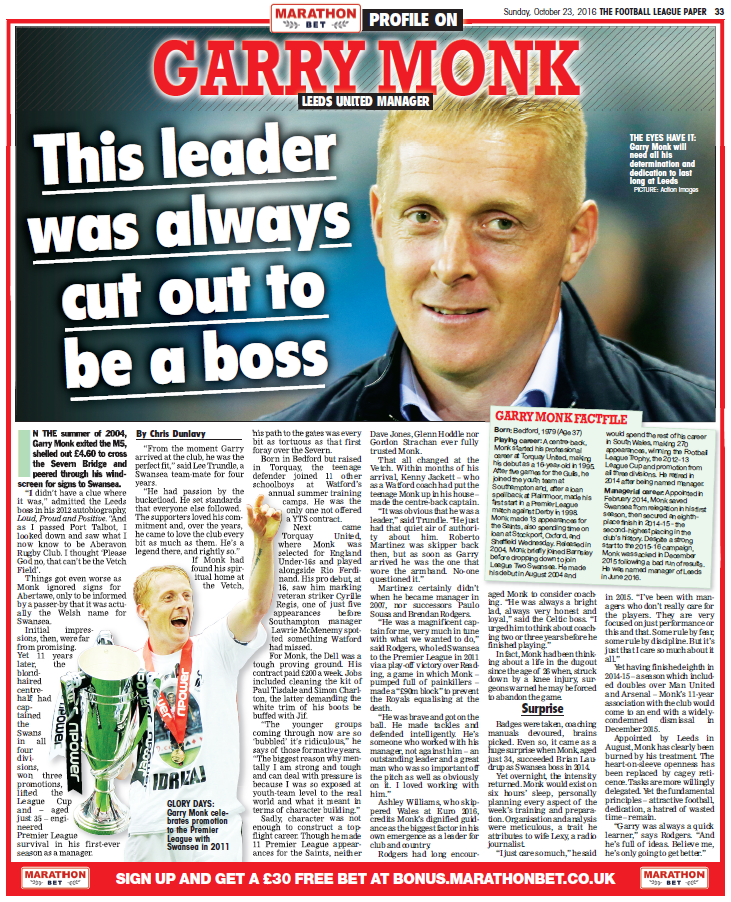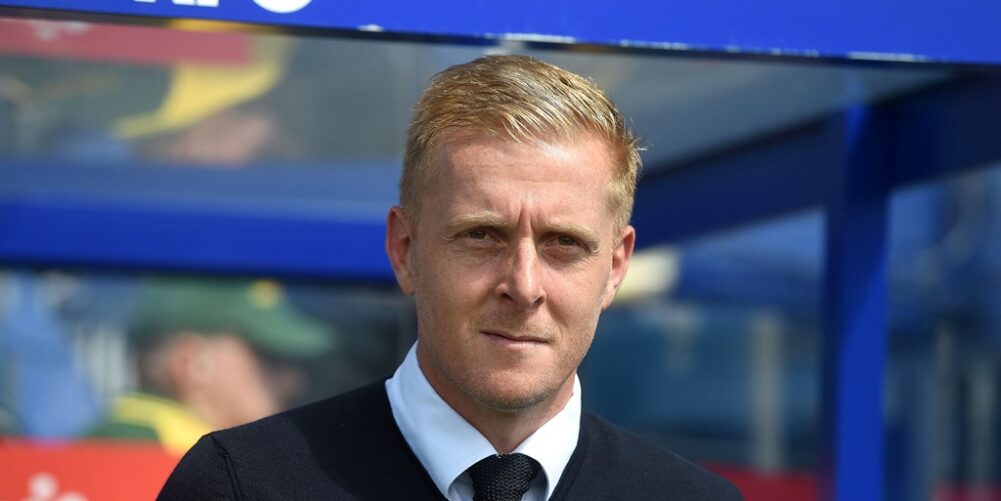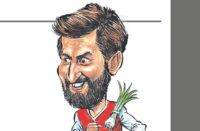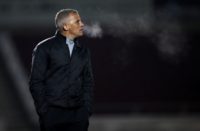By Chris Dunlavy
In the summer of 2004, Garry Monk exited the M5, shelled out £4.60 to cross the Severn Bridge and peered through his windscreen for signs to Swansea.
“I didn't have a clue where it was,” admitted the Leeds boss in his 2012 autobiography, Loud, Proud and Positive. “And as I passed Port Talbot, I looked down and saw what I now know to be Aberavon Rugby Club. I thought ‘Please God no, that can't be the Vetch Field'.
Things got even worse as Monk ignored signs for Abertawe, only to be informed by a passer-by that it was actually the Welsh name for Swansea.
Initial impressions, then, were far from promising. Yet 11 years later, the blond-haired centre-half had captained the Swans in all four divisions, won three promotions, lifted the League Cup and – aged just 35 – engineered Premier League survival in his first-ever season as a manager.
“From the moment Garry arrived at the club, he was the perfect fit,” said Lee Trundle, a Swansea team-mate for four years.
“He had passion by the bucketload. He set standards that everyone else followed. The supporters loved his commitment and, over the years, he came to love the club every bit as much as them. He's a legend there, and rightly so.”
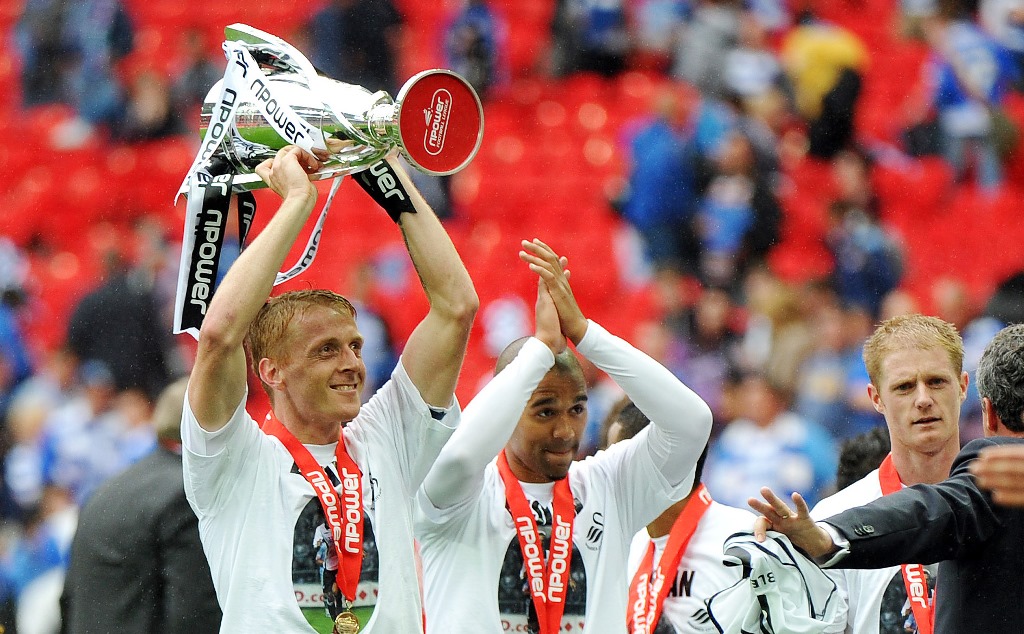
If Monk had found his spiritual home at the Vetch, his path to the gates was every bit as tortuous as that first foray over the Severn.
Born in Bedford but raised in Torquay, the teenage defender joined 11 other schoolboys at Watford's annual summer training camps. He was the only one not offered a YTS contract.
Next came Torquay United, where Monk was selected for England Under-16s and played alongside Rio Ferdinand. His pro debut, at 16, saw him marking veteran striker Cyrille Regis, one of just five appearances before Southampton manager Lawrie McMenemy spotted something Watford had missed.
For Monk, the Dell was a tough proving ground. His contract paid £200 a week. Jobs included cleaning the kit of Paul Tisdale and Simon Charlton, the latter demanding the white trim of his boots be buffed with Jif.
“The younger groups coming through now are so ‘bubbled' it's ridiculous,” he says of those formative years. “The biggest reason why mentally I am strong and tough and can deal with pressure is because I was so exposed at youth-team level to the real world and what it meant in terms of character building.”
Sadly, character was not enough to construct a top-flight career. Though he made 11 Premier League appearances for the Saints, neither Dave Jones, Glenn Hoddle nor Gordon Strachan ever fully trusted Monk.
That all changed at the Vetch. Within months of his arrival, Kenny Jackett – who as a Watford coach had put the teenage Monk up in his house – made the centre-back captain.
“It was obvious that he was a leader,” said Trundle. “He just had that quiet air of authority about him. Roberto Martinez was skipper back then, but as soon as Garry arrived he was the one that wore the armband. No-one questioned it.”
Martinez certainly didn't when he became manager in 2007, nor successors Paulo Sousa and Brendan Rodgers.
“He was a magnificent captain for me, very much in tune with what we wanted to do,” said Rodgers, who led Swansea to the Premier League in 2011 via a play-off victory over Reading, a game in which Monk – pumped full of painkillers – made a “£90m block” to prevent the Royals equalising at the death.
“He was brave and got on the ball. He made tackles and defended intelligently. He's someone who worked with his manager, not against him – an outstanding leader and a great man who was so important off the pitch as well as obviously on it. I loved working with him.”

The FLP's weekly profile is sponsored by Marathonbet. Odds here: https://www.marathonbet.co.uk/en/
Ashley Williams, who skippered Wales at Euro 2016, credits Monk's dignified guidance as the biggest factor in his own emergence as a leader for club and country.
Rodgers had long encouraged Monk to consider coaching. “He was always a bright lad, always very honest and loyal,” said the Celtic boss. “I urged him to think about coaching two or three years before he finished playing.”
In fact, Monk had been thinking about a life in the dugout since the age of 26 when, struck down by a knee injury, surgeons warned he may be forced to abandon the game.
Badges were taken, coaching manuals devoured, brains picked. Even so, it came as a huge surprise when Monk, aged just 34, succeeded Brian Laudrup as Swansea boss in 2014.
Yet overnight, the intensity returned. Monk would exist on six hours' sleep, personally planning every aspect of the week's training and preparation. Organisation and analysis were meticulous, a trait he attributes to wife Lexy, a radio journalist.
“I just care so much,” he said in 2015. “I've been with managers who don't really care for the players. They are very focused on just performance or this and that. Some rule by fear, some rule by discipline. But it's just that I care so much about it all.”
Yet having finished eighth in 2014-15 – a season which included doubles over Man United and Arsenal – Monk's 11-year association with the club would come to an end with a widely-condemned dismissal in December 2015.
Appointed by Leeds in August, Monk has clearly been burned by his treatment. The heart-on-sleeve openness has been replaced by cagey reticence. Tasks are more willingly delegated. Yet the fundamental principles – attractive football, dedication, a hatred of wasted time – remain.
“Garry was always a quick learner,” says Rodgers. “And he's full of ideas. Believe me, he's only going to get better.
*This article originally featured in The FLP edition – pick up your copy of the paper in your local newsagents/supermarket every Sunday!
